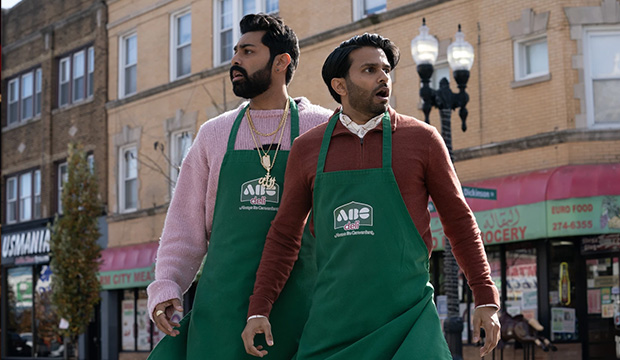Deli Boys on Hulu Redefines Representation in Hollywood Casting

Hollywood is no stranger to unconventional casting stories, but Hulu’s Deli Boys stands out. Lead actors Asif Ali and Saagar Shaikh, who portray Pakistani-American brothers Mir and Raj Dar, initially auditioned for the same role. While Ali landed the part of Mir, Shaikh was cast as Raj — a twist that ultimately gave the show its chemistry and cultural depth.
Breaking the “Only One” Rule
The casting experience underscores a deeper industry issue. As Shaikh explains, “Other shows do it all the time, but for some reason, when it comes to minorities, you can only have one of this and one of that.” Ali echoes the sentiment, reflecting on the rarity of working with a majority South Asian cast and crew: “You can bring a lot of authenticity when people from the culture are part of the process.”
This environment led to a unique camaraderie on set, with Shaikh noting an “immediate shorthand” between actors who had previously competed for the same roles. “We never thought we’d all get to work together,” he says, emphasizing how minority actors are often treated as interchangeable tokens rather than as professionals with distinct voices.
Authentic Comedy Meets High Stakes Drama
Deli Boys centers on two brothers who discover their recently deceased father was secretly a drug kingpin. Despite the heavy premise, the show balances tension and humor. “We’re not taking a stance or teaching a lesson,” says Shaikh. “We’re just having fun.”
The contrast between high-stakes drama and comedy works to the show’s advantage. “The comedy cuts the tension,” notes Shaikh, while Ali adds that it’s similar to horror in how tension amplifies comedic relief. The result? Authentic performances grounded in stress, absurdity, and sibling chaos.
See More ...
The Gilded Age Season 3: HBO’s Period Drama Reflects Today’s Power Struggles
Changing the Narrative
Ali hopes Deli Boys will help dismantle outdated industry mindsets. “It doesn’t have to be a show led by a white person,” he says. “You just need a good story — people will watch.” The success of a culturally rich and character-driven series like Deli Boys proves audiences crave authenticity over outdated formulas.
For Ali and Shaikh, Deli Boys isn’t just a career milestone — it’s a statement. “The scope of these characters wouldn’t have been possible for people who look like us in the past,” says Ali. Now, they’re redefining what representation can — and should — look like.




